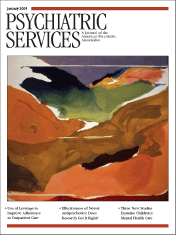Couldn't Keep It to Myself: Testimonies From Our Imprisoned Sisters
I rarely think of incarcerated women as being lucky, but I'm embarrassed to say that that was my first thought about the contributors to Wally Lamb's latest book of essays, Couldn't Keep It to Myself: Testimonies From Our Imprisoned Sisters. The book is a collection of short stories and mini-biographies by women who participated in Lamb's writers' group at the York Correctional Institution in Connecticut.
The idea for a writers' group at the all-female institution began in the late 1990s after a series of inmate suicides left women in the facility depressed and hopeless. The facility's response—one that probably wouldn't occur today—was to reach out to members of the Connecticut community for support. As part of that outreach, the staff librarian contacted Wally Lamb to ask whether he would speak about the process of writing to the inmates. In August 1999 Lamb made his first presentation on the use of writing as a coping tool. The response was positive; his visits to the facility became a regular event, and a writers' group began.
The women's stories are instantly engaging. They are accessible, intimate, and reflective without being sticky or sympathetic and are varied in style and content. The stories reveal painful lives written from the empowered vantage point of involvement in a process of healing. They humanize female offenders and illustrate the victimization, bad judgment, and tragic compulsions that lead some women to become inmates.
Having worked with individuals in mental health and criminal justice systems for close to 14 years, I found this book engaging, useful, and provocative. This book is a worthwhile read—and arguably a mandatory one—for anyone who works with people involved with the criminal justice system or who is training or educating those who will work in the system. At the end of the book is a list of resources for would-be writers and sources Lamb consulted for information about women and corrections.
Anyone who has worked with offenders knows that it is important to find some strength to stay sane during the incarceration. Anyone who puts pen to paper to tell his or her story is courageous. These women not only are proud and courageous, they are writers. Their stories expand the reader's understanding of incarceration and the roads that lead there.
Now that I have read the book, instead of thinking these women are lucky for having participated in Lamb's writers' group, I realize that they are blessed for an entirely different reason: in the process of joining the writers' group, they've had the rare experience in their lives of finding their own true voices.
Ms. Orr is area forensic director with the Massachusetts Department of Mental Health in Boston.



